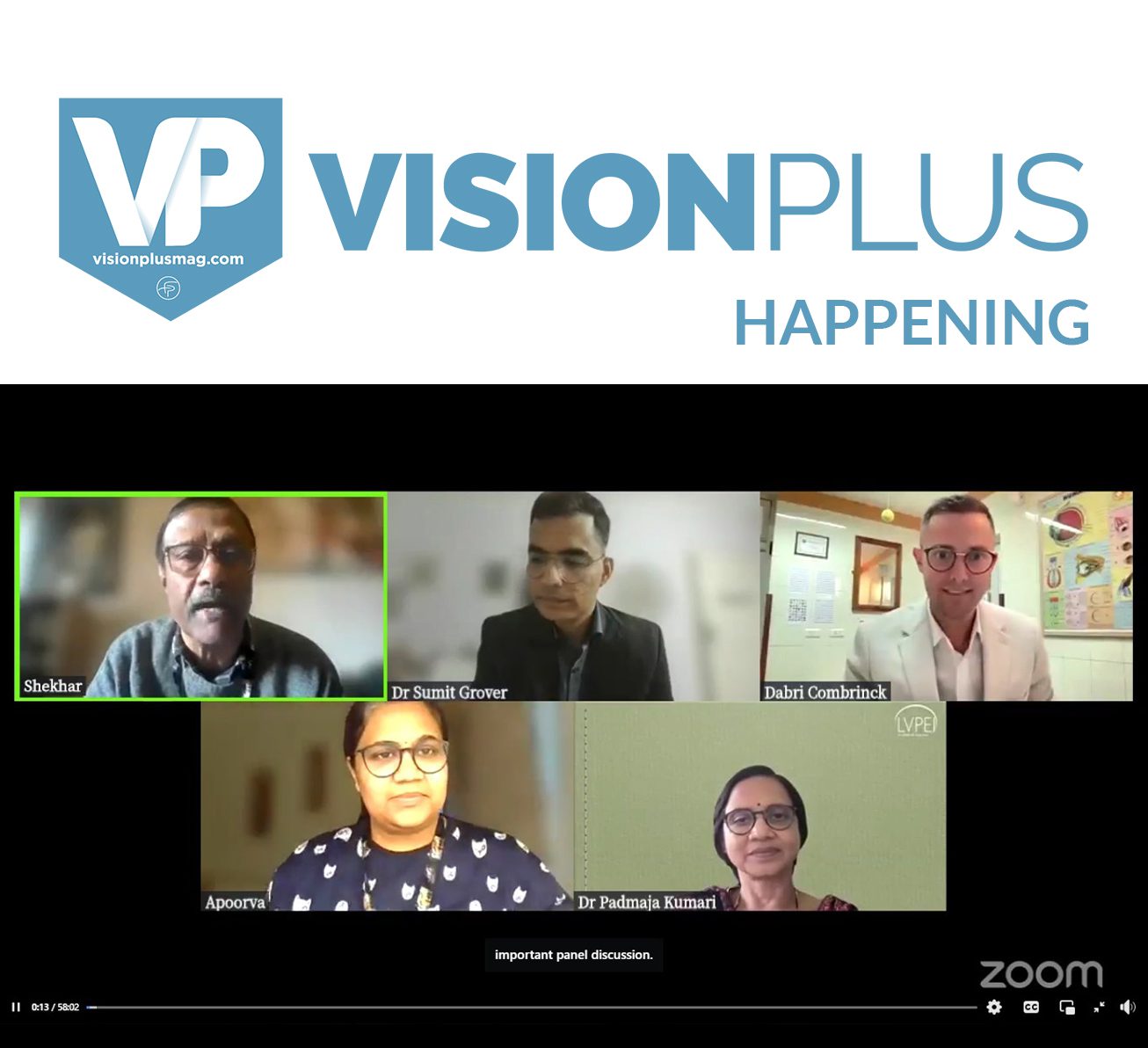Moderated by Mr Shekhar Nambiar, Director of Communications, IVI, the discussion featured an expert panel comprising Dr. Padmaja Kumari Rani, Vitreoretinal surgeon and Head-Teleophthalmology, LVPEI Hyderabad, Dr Sumit Grover, Assistant Professor of Ophthalmology, AIIMS, Delhi and Mr Dabri Combrinck, Senior Consultant Optometrist, Landour Community Hospital, Mussoorie.
 The panel focused on the prevalence of Diabetes and related eye conditions in India, the effectiveness of mobile vans and telemedicine in reducing the burden and early detection, the role of technological advancement in service delivery, the integration of eye health services in public and private health facilities, and public awareness on diabetic eye diseases.
The panel focused on the prevalence of Diabetes and related eye conditions in India, the effectiveness of mobile vans and telemedicine in reducing the burden and early detection, the role of technological advancement in service delivery, the integration of eye health services in public and private health facilities, and public awareness on diabetic eye diseases.
Dr. Padmaja Kumari noted that 60% of individuals with diabetes experience refractive errors and 40% suffer from cataracts. Further, 12% of this population is affected by Diabetic Retinopathy (DR) – with 3 million individuals facing vision-threatening DR. She emphasised the urgency of addressing the issue through telemedicine and mobile vans for diagnosis, adopting cloud-based advancement in telemedicine management, targeted and opportunistic screening for early detection, capacity building of optometrists who are in the frontline of DR detection, innovation in awareness efforts, and task sharing in service delivery.
Dr Sumit Grover echoed Dr Padmaja’s remarks, stressing the gaps in eye care service delivery, lack of awareness among the general public, existing taboos, the need for integration of eye care and general health care services, upskilling frontline professionals (optometrists, NCD nurses), and the importance of systematic changes to manage the diabetic eye disease burden in India.
Mr. Dabri Combrinck from Landour town, Uttarakhand stressed the importance of effective use of existing technologies in eye care, highlighting the need for regular vision screenings, targeted awareness campaigns and improved access to facilities, adding that preventing and managing diabetic eye conditions requires a holistic approach, including lifestyle and dietary changes.
The discussion concluded with a collective recognition of the importance of effective usage of technological advancements, optometrists’ training as frontline eye care professionals in early detection and appropriate referral of patients, integration of eye care services into public and private health care, effective partnerships, awareness and advocacy efforts to reduce the diabetic eye disease burden and its associated economic and productivity losses.












